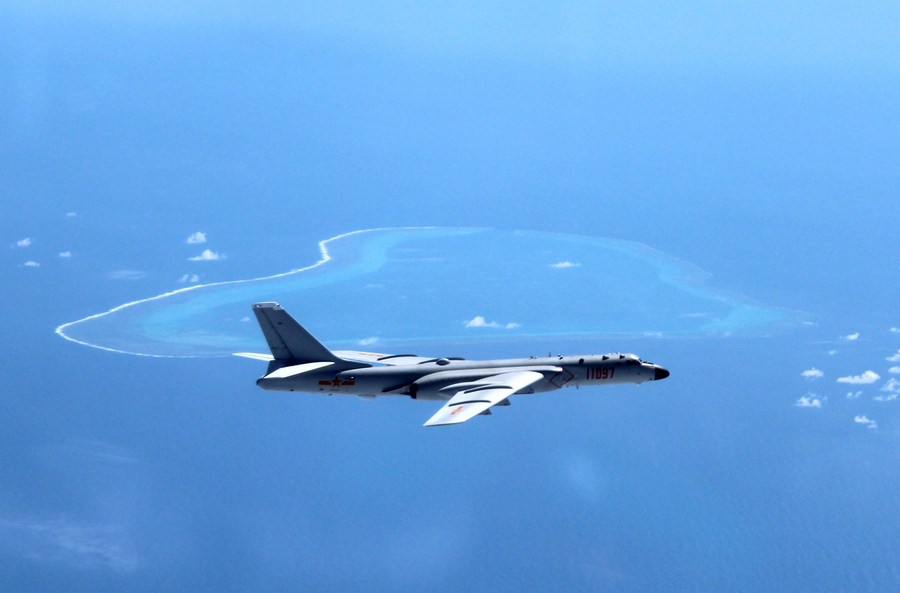The United States has discarded its guise of neutrality over the South China Sea issue with a recent statement, said Wu Shicun, president of China's National Institute for South China Sea Studies.
In an interview with Global Times on Wednesday, Wu said the U.S. has completely taken sides with the Philippines and other Southeast Asian claimants over the South China Sea and has completely given up its commitment of holding a neutral position on relevant territorial sovereignty disputes.
U.S. Secretary of State Mike Pompeo said in a statement on Monday that "Beijing's claims to offshore resources across most of the South China Sea are completely unlawful," accusing China of a campaign of bullying to control the resources. Pompeo added that the so-called award of the South China Sea arbitration in 2016 was legally binding to both China and the Philippines.
China expressed firm opposition to the statement and urged the U.S. to stop interfering in the issue, noting that the U.S. is "not a country directly involved in the disputes."

This file photo taken in July 2016 shows a Chinese H-6K bomber patrolling islands and reefs including Huangyan Island in the South China Sea. /Xinhua
This file photo taken in July 2016 shows a Chinese H-6K bomber patrolling islands and reefs including Huangyan Island in the South China Sea. /Xinhua
Wu described Pompeo's statement as the "latest turning point" of Washington's policy on the South China Sea, saying it indicates the U.S. has completely abandoned its policy of neutrality.
Opinions expressed in the statement were the same with the 2016 arbitration, which, hyped up by the United States, completely denied China's legitimate interests and claims, Wu said.
"China's position on such arbitration has been clear and consistent," he stressed. "We do not accept or participate in the arbitration and will never recognize or accept the related awards and will not accept any claims or action based on those. The arbitration was invalid and unlawful from China's point of view."
Moreover, the Nansha Islands are inseparable as an "independent political and geographical unit," Wu said, adding that China claims sovereignty and jurisdiction over the whole Nansha Islands.
"Both the Meiji Reef and the Ren'ai Reef are inseparable parts of the Nansha Islands," he noted.
Chinese State Councilor and Foreign Minister Wang Yi and Philippine Foreign Secretary Teodoro Locsin held a videoconference on Tuesday. Wang said China will continue to work with regional countries, including the Philippines, to resolve maritime issues through dialogue and consultations, uphold the principles of the Declaration on the Conduct of Parties in the South China Sea (DOC) and reach a binding Code of Conduct in the South China Sea (COC) as soon as possible.
Locsin said the Philippines is willing to work with China to resolve disputes in the South China Sea through friendly bilateral consultations, actively promote maritime cooperation, and jointly safeguard the peace and stability of the South China Sea.
(With input from Xinhua)